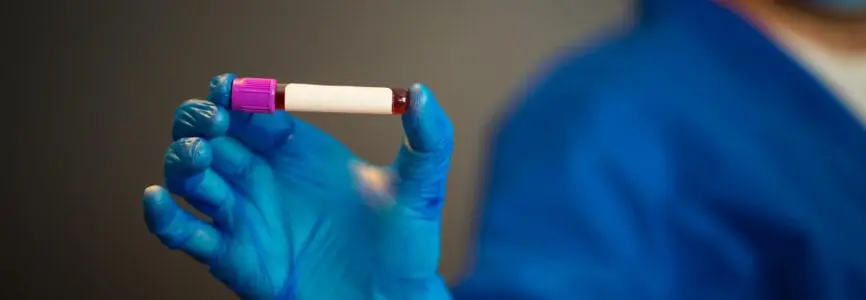Bioethics Forum Essay
Show Me Your Passport: Ethical Concerns About Covid-19 Antibody Testing as Key to Reopening Public Life
Around the world, governments are looking for safe ways to lift unprecedented restrictions on public activities to curb the spread of Covid-19. So-called immunity passports could be key to the effort to selectively ease restrictions for people presumed to be immune to the virus. Immunity passports would rely on antibody tests, which indicate whether someone has antibodies to the virus, evidence that the person was infected and recovered. While many people are cautiously optimistic, most experts agree that antibody testing isn’t ready for this purpose. We don’t know if any of the available tests are accurate enough to identify who does or does not have antibodies. We don’t even know if people with antibodies can still get sick or spread the disease. These technical obstacles could be overcome with continued research, but what calls for better data fail to recognize is that, even with perfect science, immunity passports to re-enter public life will further exacerbate disparities that already figure so prominently in the devastating impact of Covid-19.
We have already seen how inequities in nasal swab testing to diagnose active infection have affected the dynamics of the Covid-19 outbreak. While major epicenters of the infection struggled to diagnose and isolate their sickest patients, celebrities with minimal symptoms received rapid tests at home. Sick health care workers self-isolated and returned to work without the clarity of a test result, while public figures underwent multiple tests in the absence of any symptoms. Hard hit communities of color were last to gain access to testing, despite high rates of disease and substantial obstacles to self-isolation. Months into the pandemic, testing capacity in the United States is less than one-third of what public health officials have called for. If this has been the course of nasal swab testing, how should we expect antibody testing to unfold, particularly if it is linked to the crucial resource of public mobility?
As with nasal swab testing, it seems inevitable that celebrities, politicians, public figures, and wealthy private individuals will be able to leverage their power and status to get antibody testing and, by extension, public mobility. Those first to display immunity passports will then be first to re-enter businesses, schools, shopping centers, television studios, courthouses, and polling places, further consolidating power and influence. Meanwhile, workers unable to access testing with their own resources may be sponsored for testing by their employers. Those awarded immunity passports could then be called back into service. With the emphasis on immunity as a pathway to restore business as usual, other workplace protections may be deferred or neglected. Passport holders may be required to work extended shifts, sacrifice breaks or vacation, and tolerate otherwise undesirable conditions to make up for lost time and absorb the duties of their nonimmune colleagues. With businesses restoring operations under cover of immunity passports, those who are not immune are likely to face layoffs and loss of benefits, amplifying both their physical and financial risk.
Still, it is understandable why many hope to be able to have their cake and eat it too–to be assured of their protection from Covid-19 and to resume their public life. Unfortunately, even surprisingly high recent estimates of antibody prevalence suggest that only 2% to 5% of the population stands to receive an immunity passport. For those who do not, there may be a perverse incentive to be exposed to the coronavirus or to expose their families and especially their children. Multiple vocal groups have distorted epidemiologic data to claim that public health messaging about Covid-19 is overblown and, in particular, that children are not affected and should not be required to practice social distancing. Rewarding natural immunity with freedom of movement, including the ability to return to school, may lead to the same “exposure parties” already practiced as an unsanctioned alternative to chickenpox vaccination, but with potentially greater individual and public health consequences.
Ultimately, the notion of using biological testing for a disease as a way to distribute vital freedoms and resources raises substantial moral concerns. Those who are already powerful stand to benefit from access to cutting-edge testing in addition to ongoing access to high-quality medical care, food and housing security, job security, and public influence. Those who are already vulnerable–the poor, laborers, those with marginalized identities, and children–stand to face still greater challenges to their physical health, security, and well-being. We do not know if antibody tests are accurate or if they overestimate or underestimate the number of people with antibodies. We do not know if antibodies are protective or if they do nothing or if they might increase the risk of worse infection. We do not know how long antibodies last or if and when they need to be rechecked to ensure ongoing immunity.
Some might hear all of this and say we do not know enough, yet, to implement immunity passports. But I think that we ought to know enough not to. Antibody testing will still be needed to answer other important personal health and population health questions, and investigations into coronavirus antibodies must and will continue. But the path to reopening public life should be set by expert health officials, with close attention to justice and equity, and at no point on that path should anyone be stopped and asked, “Show me your passport.”
Olivia S. Kates, MD, is a senior fellow in the Division of Allergy and Infectious Diseases and a student in the Department of Bioethics and Humanities at the University of Washington in Seattle. Twitter: @KatesOlivia.













